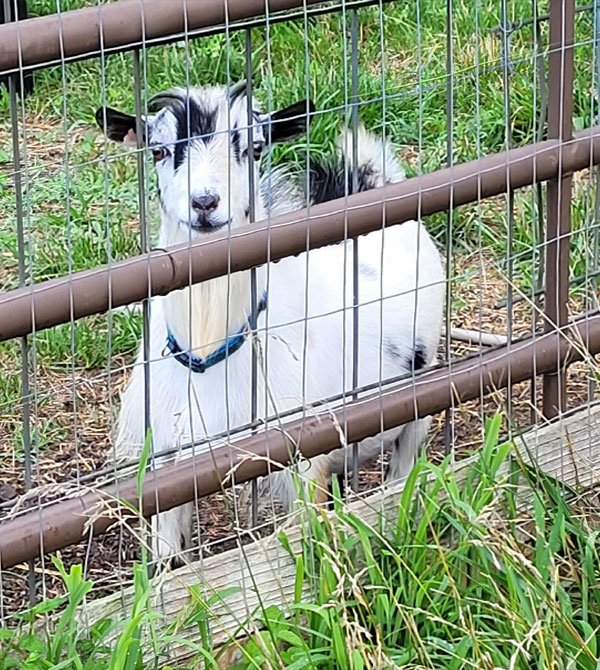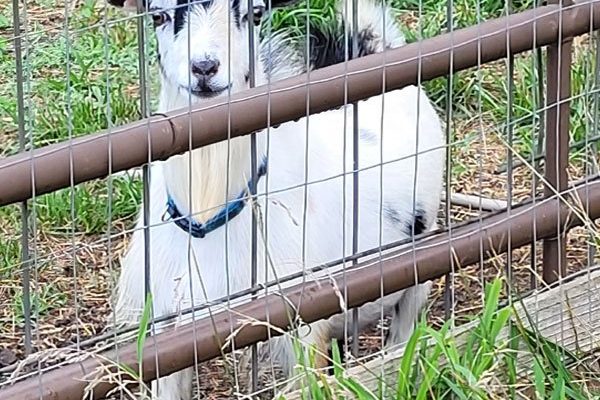
Imagine setting up a cozy nook in your backyard where your goats can roam, graze, and play. It might seem straightforward, but there’s actually a lot that goes into creating a proper environment. From their shelter to the right kind of fencing, let’s dive into what you need to know to make your goat-keeping adventure a success.
Understanding the Basics of Goat Housing
Creating the right housing for your Nigerian Dwarf goats is like building a solid foundation for a house. You want something sturdy, comfortable, and safe. Goats are surprisingly hardy animals, but they still need protection from harsh weather, predators, and potential stressors.
First off, let’s talk about size. Each goat should ideally have at least 15 to 20 square feet in their shelter. If you’re housing multiple goats, make sure you calculate the space accordingly. Think of it as giving each goat its own room in a cozy apartment. The more room they have, the happier they’ll be!
When it comes to materials, wooden or metal structures work great. Make sure the shelter has good ventilation and is easy to clean. Goats can be a bit messy—think of them as the messy roommates who leave toys everywhere! Plus, adding a bed of straw or wood shavings will help keep them comfortable and warm.
Essential Elements of Goat Shelters
Now that we’ve settled on the basics, what else does a goat shelter need? Here are a few essential elements to consider:
- Ventilation: Proper airflow is crucial. Goats don’t like to feel stuffy or trapped.
- Dry Floor: Keep the floor dry to prevent hoof problems, which can be common in damp environments.
- Protection from Predators: Make sure your shelter can keep out any potential predators. This could mean using solid walls or reinforced doors.
- Safe Nesting Areas: Consider adding a small platform or raised area for your goats to rest and keep out of the mud.
You might also want to include some “goat toys”—things like logs or stumps they can climb on. Goats love to climb, and providing these fun features can help keep them entertained and active.
The Importance of Fencing for Nigerian Dwarf Goats
Now that your goats have a lovely home, let’s talk about fencing. Good fencing is crucial for keeping your goats safe and contained. After all, nobody wants a runaway goat causing chaos in the neighborhood!
You might be wondering what type of fencing works best. The golden rule is to have a fence that stands at least 4 to 5 feet tall. Nigerian Dwarfs are nimble little critters and can easily hop over a lower fence.
When choosing the material, you have a couple of options:
- Woven Wire Fencing: This is a popular choice because it’s durable and provides a good barrier against predators.
- Stock Fencing: It’s usually easy to install and can be reinforced with barbed wire along the top for added security.
Don’t forget to check the bottom of your fence! Goats are notorious for digging, so you might need to bury the first few inches of fencing underground or use concrete blocks to keep them from tunneling under.
Creating a Safe and Secure Outdoor Space
Once your shelter and fencing are up, think about the outdoor space for your Nigerian Dwarf goats. They love to graze and explore, and giving them a secure, spacious area is key to their happiness.
Here are a few things to keep in mind when designing their outdoor area:
- Size: Aim for at least 200 to 250 square feet per goat for their outdoor pen. This space allows them to roam freely and reduces boredom.
- Shade: Goats need shade during hot days. Whether from trees or canopies, make sure they have a cool spot to lounge.
- Safe Grazing: Ensure the grass and plants in their area are safe for goats. Some plants can be toxic, so a little research goes a long way!
You might also want to include different textures and terrains in their outdoor space, like rocks or logs they can climb on. This not only provides mental stimulation but also encourages natural behaviors.
Keeping Your Goats Healthy in Their Environment
Providing the right environment is only part of the equation. Once you’ve set up their shelter and fencing, it’s important to keep a close eye on their health. Goats can be sensitive to stress, so a peaceful environment will help them thrive.
Make sure to regularly clean their living area. This helps prevent parasites and diseases which can thrive in dirty conditions.
Also, consider introducing a routine. Goats are creatures of habit, and having a consistent schedule for feeding, grooming, and playtime will help them feel secure. Think of it as a daily ritual that benefits both you and your goats.
Common Questions and Concerns
As you begin your journey into goat-keeping, you might have a few concerns. Here are some things people often wonder about:
– What if my goats start to chew on the fence?
Goats love to nibble! Try using a fencing material that’s less appealing to them or keep their minds occupied with more interesting snacks.
– How can I tell if my goats are stressed?
Look for signs like excessive bleating, pacing, or changes in eating habits. If you notice these behaviors, check their environment for stressors.
Remember, goat-keeping is a learning process, and every goat has its own unique personality. You’ll get to know what makes your goats happy and comfortable as you go along.
Final Thoughts on Housing and Fencing
Creating a safe, comfortable home for your Nigerian Dwarf goats is the foundation for a happy and healthy herd. By focusing on their housing, fencing, and outdoor space, you’re setting the stage for a fulfilling experience—both for you and your little companions.
Remember, it’s all about creating a space where they can thrive and be themselves. With a little effort and care, you’ll be well on your way to enjoying the many joys of goat-keeping. And who knows? You might even find they become some of your best friends!

